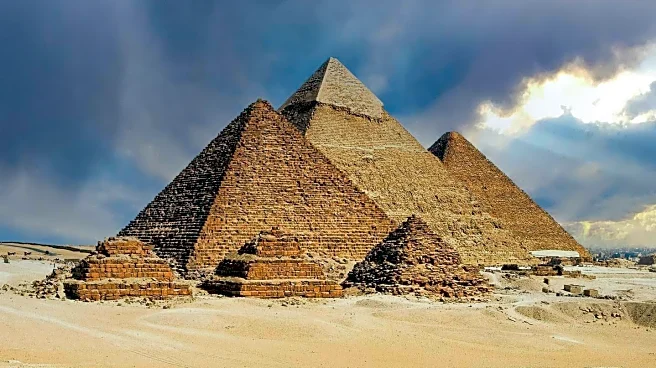What's Happening?
A new study has revealed that the tomb of Egyptian pharaoh Tutankhamun is at risk of collapse due to structural damage caused by climate change. The report, led by Sayed Hemeda from Cairo University, attributes the deterioration to flash floods and rising
humidity levels, which have caused cracks in the ceiling and fungal outbreaks on the mural walls. The study emphasizes the need for immediate reinforcement and moisture control to prevent further damage. The tomb, located in the Valley of the Kings, is one of the most famous archaeological sites but is considered poorly preserved.
Why It's Important?
The potential collapse of Tutankhamun's tomb underscores the broader impact of climate change on cultural heritage sites. This situation highlights the urgent need for preservation efforts and adaptive strategies to protect historical monuments from environmental threats. The loss of such a significant archaeological site would be a cultural tragedy, affecting tourism and historical research. The study calls for international collaboration and investment in conservation technologies to safeguard global heritage sites against climate-induced damage.














